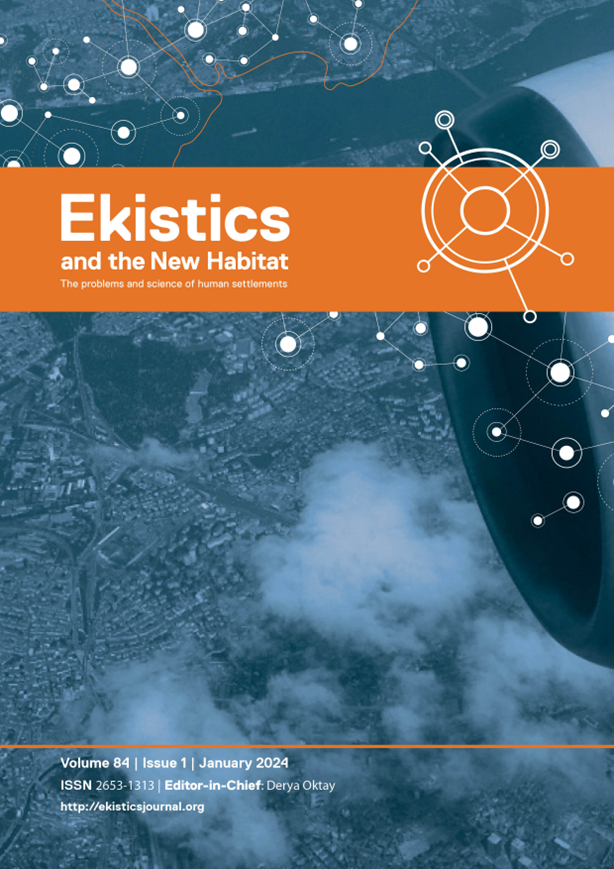Harmonious Human Settlements in the Light of the Principles of Ekistics
DOI:
https://doi.org/10.53910/26531313-E2024841678Keywords:
SDGs, Ekistics, sustainability, harmonious urbanization, balanced territorial developmentAbstract
Confronted with mounting challenges such as rapid urbanization, global living disparities, climate change, natural disasters, the recent upheaval of the COVID-19 pandemic, and the Ukrainian-Russian War, the United Nations and other international entities have redirected their focus towards fostering resilient, democratic, cohesive, sustainable, and digital societies. This paradigm shift necessitates a global partnership to conserve, protect, and restore the health and integrity of the Earth's ecosystem. Amid these complex issues, the Ekistics principles provide a comprehensive framework, advocating for harmonious urbanization and balanced territorial development. These principles prioritize the incorporation of ethical, social, environmental, and economic considerations into urban planning and governance processes. Nevertheless, critics argue that sustaining the capitalist system poses a challenge to achieving harmonious settlements, balanced urbanization, and the preservation of natural, environmental, and cultural values. This paper underscores the significance and relevance of Ekistics principles in shaping the discourse around Sustainable Development Goals (SDGs). It contends that revolutionary changes in globalization, communications technology, and industrial development mandate a reevaluation of existing approaches to address the most pressing global issues and their potential solutions. By highlighting the Ekistics principles, this article contributes to a nuanced understanding of the intricate dynamics shaping urban living in the contemporary era. The analysis aims to stimulate a reorientation of prevailing strategies and policies, fostering a more sustainable and harmonious trajectory for global urbanization.
Downloads
Published
How to Cite
Issue
Section
Categories
License
Copyright (c) 2023 Ekistics and The New Habitat

This work is licensed under a Creative Commons Attribution-NonCommercial-NoDerivatives 4.0 International License.
Please contact the Editor-in-Chief: editor@ekisticsjournal.org, should you have any questions on copyright for your submission.
This research journal is for Educational and Knowledge development purposes.
All material published on this site complies with our copyright and terms as described by the Attribution-NonCommercial-NoDerivaties 4.0 International (CC BY-NC-ND 4.0)






